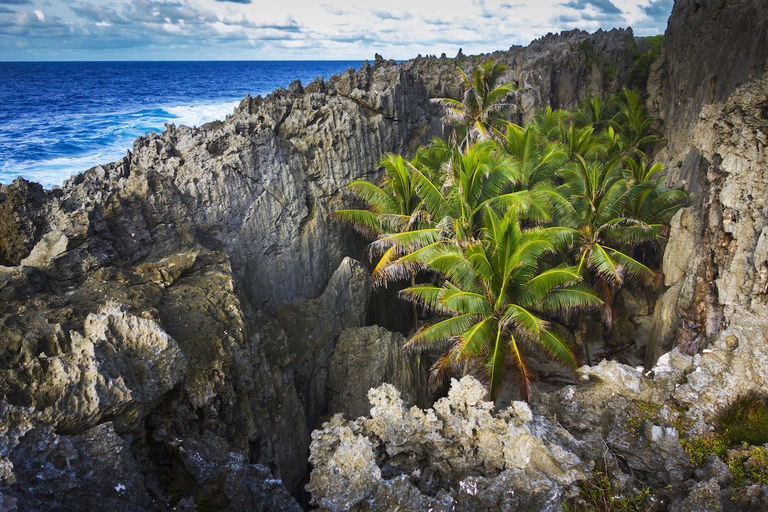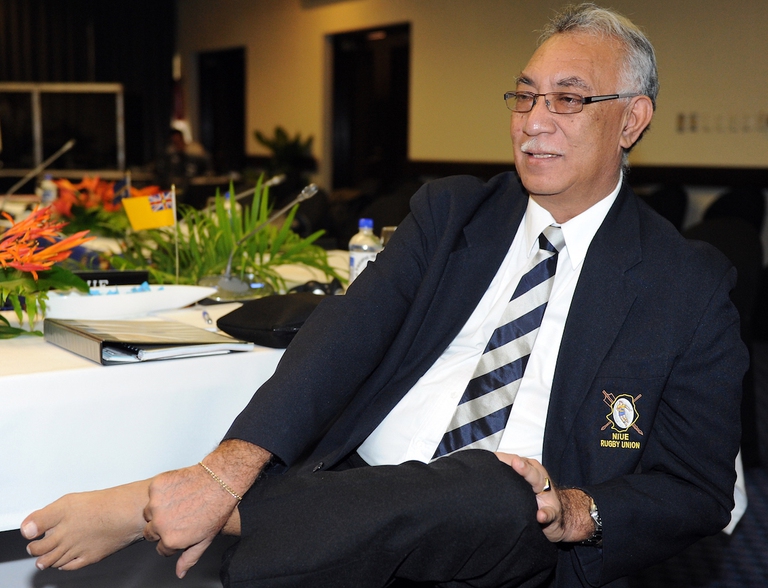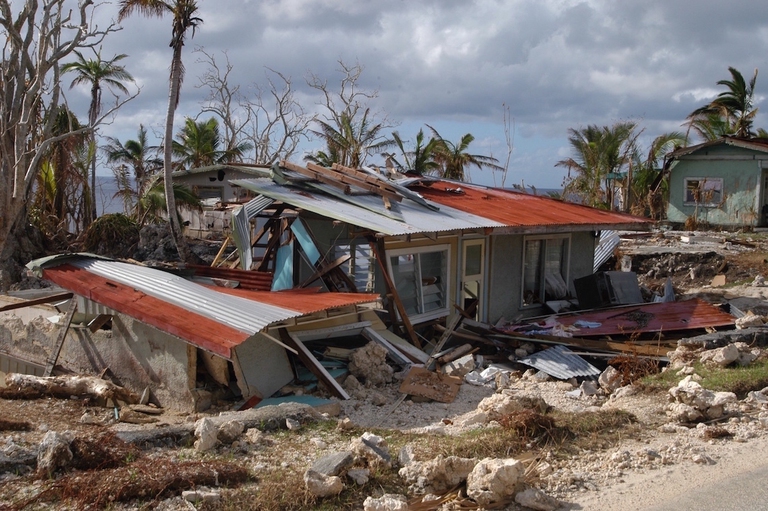
A group of experts in Tokyo suggested pouring radioactive water from Fukushima into the open sea. A marine biochemist explains the consequences of this absurd decision.
The island nation of Niue, perched on a coral atoll in the South Pacific Ocean and with a population of around 2,000, has paid off all its national debt, which amounted to 4 million dollars (2,000 per inhabitant). Premier Toke Talagi has declared that Niue will no longer be accepting loans but rather will focus on
The island nation of Niue, perched on a coral atoll in the South Pacific Ocean and with a population of around 2,000, has paid off all its national debt, which amounted to 4 million dollars (2,000 per inhabitant). Premier Toke Talagi has declared that Niue will no longer be accepting loans but rather will focus on taking advantage of its own resources, such as banana and water exports, and tourism. Talagi also hopes this will encourage young Niueans to return to the island in an effort to counter the population exodus experienced over the last few decades.
This way Niue joins a group of a select few debt free countries. By focusing on strengthening the local economy whilst posing more manageable development targets, Niue is beginning to tackle problems such as the afore-mentioned population decrease. Economic incentives such as payments for families with new-borns, a rise in salary for government employees (the single largest employer on the island) and the consolidation of a four-day working week have all contributed to expats returning to and young people remaining on Niue. Premier Talagi can already claim some success: “In the last few years we’ve seen a 10 per cent rise in our population, mainly through young people returning from New Zealand. A sort of reverse migration.”
Niue relies on New Zealand for representation in international diplomacy as well as aid packages, which in 2015-16 amounted to 16.4 million dollars. However, Talagi has also declared his desire for Niue to obtain UN membership, so as to gain a stronger voice in global affairs and join the chorus of island states seeking representation on the world stage. This is particularly important due to island nations’ vulnerability to rising sea levels and extreme weather conditions, aggravated by the effects of climate change, which can threaten their very existence. In fact, in January 2004 Niue was hit by Cyclone Heta, which caused extensive damage to the island including the destruction of much of the capital Alofi.
The susceptibility of island nations to extreme weather has made them some of the strongest advocates for climate change mitigation strategies. Niue’s new status as a debt free country seeking UN membership can provide a model of alternative development that moves away from accumulation of debt to sustain economic growth and towards a slower-paced growth based on a balanced use of available resources and means. For island nations as well as all developing countries, Niue is becoming an example of how things can be done differently.
Siamo anche su WhatsApp. Segui il canale ufficiale LifeGate per restare aggiornata, aggiornato sulle ultime notizie e sulle nostre attività.
![]()
Quest'opera è distribuita con Licenza Creative Commons Attribuzione - Non commerciale - Non opere derivate 4.0 Internazionale.
A group of experts in Tokyo suggested pouring radioactive water from Fukushima into the open sea. A marine biochemist explains the consequences of this absurd decision.
The decline in grey and humpback whales in the Pacific and Atlantic Oceans has been traced to food shortages caused by rising ocean temperatures.
The United Nations has launched a major international alliance for ocean science, undertaking a mission close to all our hearts.
The cargo ship that ran aground off the coast of Mauritius on 25 July, causing incalculable damage, has split in two and its captain has been arrested.
The largest coral reef in the world is severely threatened by climate change, but researchers are developing strategies that could contribute to saving the Great Barrier Reef.
Seychelles have extended its marine protected area, which now covers over 400,000 square kilometres, an area larger than Germany.
Norwegian oil giant Equinor had pulled out of drilling for oil in the Great Australian Bight, one of the country’s most uncontaminated areas. A victory for activists and surfers who are now campaigning for the area to be protected forever.
30 per cent of the planet needs to be protected to stop precipitous species decline. The UN has set out its aims for the the COP15 on biodiversity scheduled for Kunming, China in October.
Ocean warming has risen to record highs over the last five years: just in 2019 the heat released into the world’s oceans was equivalent to that of 5-6 atomic bombs per second. The culprit, no doubt, is climate change.










